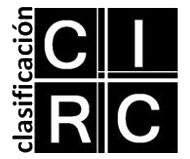The judgment of the Trial to the Military Boards
Senses on the historical process that are resignified in the present
DOI:
https://doi.org/10.24215/16696581e250Keywords:
genocide, memory, state crimes judgments, argentine militar dictatorshitAbstract
The Military Board Trial in transcendent not only for the search for Justice, but in the gold of achieving collective Memory and Truth. Today, the Judgment is cited in national courts as jurisprudence and as a voice of authority. This article proposes an analysis of the structure of meaning about the historical process produced in this sentence with the objective of contributing to the understanding of the ways in which these senses are retaken, transformed, discarded, that is, resigned, in the judicial process nowadays, for which, as an example, this article analyze the judgements of two actual cases: "Mansion Seré" (2008) and "Fiochetti" (2009).
Downloads
References
Crenzel, E. (2014) La historia Política del Nunca Más. La memoria de las desapariciones en la Argentina. Buenos Aires, Argentina: Siglo XXI.
Feierstein, D. (2007): El genocidio como práctica social. Entre el nazismo y la experiencia argentina. Buenos Aires, Argentina: Fondo de Cultura Económica.
------------(2012): Memorias y representaciones. Sobre la elaboración del genocidio. Buenos Aires, Argentina: Fondo de Cultura Económica.
------------ (2015): Juicios. Sobre la elaboración del genocidio II. Buenos Aires, Argentina: Fondo de Cultura Económica.
García Villegas, M: (2014) La eficacia simbólica del derecho. Sociología política del campo jurídico de América Latina. Bogotá, Colombia: Editorial Debate.
Nino, C. (2006): Juicio al mal absoluto. Buenos Aires, Argentina: Editorial Ariel.
Lorenzetti, R. y Kraut, A. (2011): Derechos humanos: justicia y reparación. La experiencia de los juicios en Argentina. Crímenes de Lesa Humanidad. Buenos Aires, Argentina: Editorial Sudamericana.
Piaget, J. (1968): El estructuralismo. Buenos Aires, Argentina: Prometeo
Verbitsky, H. (1987): Civiles y militares. Buenos Aires, Argentina: Contrapunto
Silveyra, M (2015). Los tribunales cuentan la historia. Los aportes de las sentencias judiciales en los sentidos y relatos del genocidio argentino en G. Levy (comp.) De militares y empresarios a políticos y ceos. Reflexiones a 40 años del golpe (pp. 237-258). Ciudad Autónoma de Buenos Aires, Argentina: Editorial Gorla.
----------------- (2016) El genocidio argentino y sus representaciones. Aportes de los procesos judiciales en la construcción de la memoria colectiva. en Revista Crítica Penal y Poder N 10. Barcelona, España.
------------- (2019) Estructuras de sentido en la Argentina democrática (1983-2015). Modos de entender la dictadura genocida (1976-1983) que dan sentido al presente. Ponencia presentada en las XVII Jornadas Interescuelas / Departamentos de Historia. Universidad Nacional de Catamarca. Mesa 69: Actores de poder, tensiones, conflictos y consensos en la Historia Argentina post-dictatorial. Miradas subnacionales, nacionales y comparadas. http://www.huma.unca.edu.ar/novedades/407-xvii-jornadas-interescuelas-departamento-de-historia
Downloads
Published
How to Cite
Issue
Section
License
La aceptación de un original por parte de la revista implica la cesión no exclusiva de los derechos patrimoniales de los/as autores/as en favor del editor, quien permite la reutilización, luego de su edición (postprint), bajo una Licencia Creative Commons Atribución-NoComercial-CompartirIgual 4.0 Internacional (CC BY-NC-SA 4.0)
Acorde a estos términos, el material se puede compartir (copiar y redistribuir en cualquier medio o formato) y adaptar (remezclar, transformar y crear a partir del material otra obra), siempre que a) se cite la autoría y la fuente original de su publicación (revista y URL de la obra), b) no se use para fines comerciales y c) se mantengan los mismos términos de la licencia.
La cesión de derechos no exclusivos implica que luego de su edición (postprint) en Question las/os autoras/es pueden publicar su trabajo en cualquier idioma, medio y formato; en tales casos, se solicita que se consigne que el material fue publicado originalmente en esta revista.
Tal cesión supone, también, la autorización de los/as autores/as para que el trabajo sea cosechado por SEDICI, el repositorio institucional de la Universidad Nacional de La Plata, y sea difundido en las bases de datos que el equipo editorial considere adecuadas para incrementar la visibilidad de la publicación y de sus autores/as.
Asimismo, la revista incentiva a las/os autoras/es para que luego de su publicación en Question depositen sus producciones en otros repositorios institucionales y temáticos, bajo el principio de que ofrecer a la sociedad la producción científica y académica sin restricciones contribuye a un mayor intercambio del conocimiento global.















































